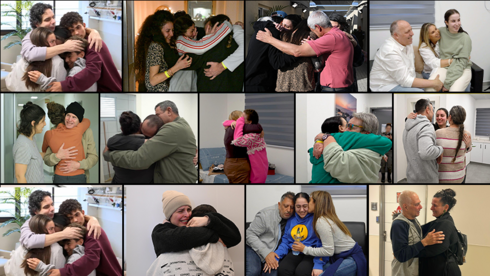Harrowing Accounts Emerge from Hamas Captivity: Hostages Describe Extreme Isolation, Forced Labor, and Psychological Terror
Newly released Israeli hostages are sharing their harrowing accounts of time in Hamas captivity, detailing extreme isolation, forced labor, and psychological terror. The hostages were held for over 15 months, with some spending nearly 16 months in captivity.
One of the released hostages, Keith Siegel, was held in Gaza City for 484 days and was frequently moved between safe houses and tunnels. He was kept in separate rooms to prevent him from being found if anyone entered. Siegel described severe food shortages, saying he had to eat meat despite being vegetarian, and that his last meal was a full day before his release.
Eyal Calderon, another released hostage, was held in cages with Bibas and was kept in tunnels and various buildings alongside other hostages. He described being forced to watch a brutal video in which Bibas was filmed after being falsely told that his wife and children had died.
The hostages were subjected to psychological terror, including being told that their loved ones had died or been killed. Eyal Calderon’s cousin, Ofer, was left in a state of complete uncertainty, not knowing if his son Rotem was alive or dead, until a few weeks ago when he found out through a media interview that his son had survived.
Jimmy Pacheco, a caregiver of Amitai Ben-Tzvi, who was murdered on October 7, was kidnapped and later released in a previous deal. He had previously recounted being held in tunnels with Bibas and Calderon, developing a close bond with them.
The released hostages have also shared stories of how they tried to preserve their identities and faith even under duress. They refused to eat leavened bread during Passover, attempted to fast on Yom Kippur, and some even observed the Sabbath.
The Thai nationals, who were also released, spoke of prolonged periods of hunger, difficulty breathing in underground tunnels, and being held in dark rooms. They were kept in two separate groups, with two in one location and three in another. Despite the harsh conditions, their medical condition was reported as stable upon release.
The released hostages are still coming to terms with their ordeal and are being supported by their families and loved ones. Many are sharing their stories and experiences to help others understand the horrors of Hamas captivity.

